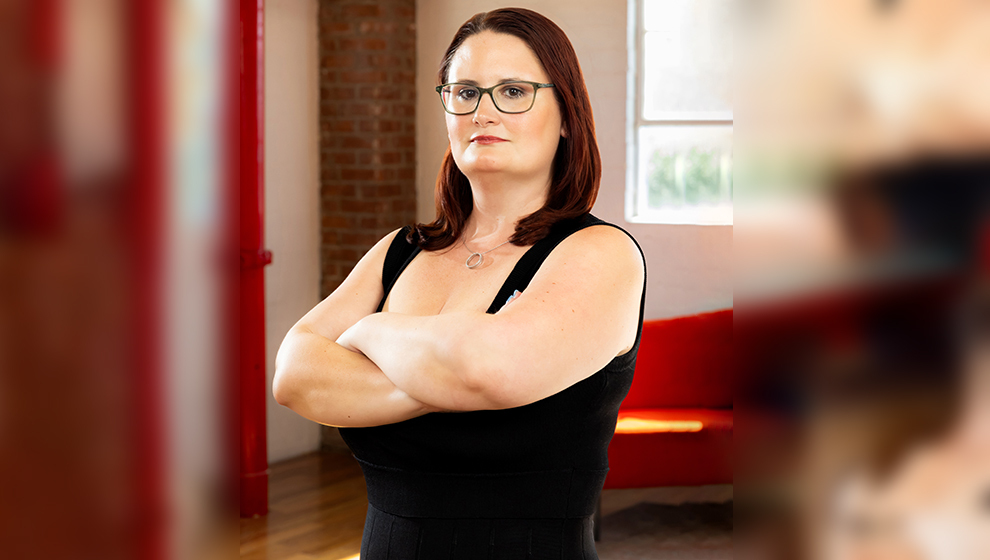Understand Your Rights. Solve Your Legal Problems


Personal injury law remains one of the most active and complex areas of litigation both in the United States and internationally. While many cases proceed to trial, a growing number are being resolved through alternative dispute resolution (ADR) methods such as mediation and arbitration. These approaches can offer faster, less adversarial outcomes — but they also raise important questions about fairness, finality, and client control.
Lawyer Monthly spoke with Amara Edblad, Founder of Amara & Associates, LLC, and a leading personal injury specialist based in Arizona, to discuss how ADR is influencing the field today. Drawing on over a decade of experience representing injured clients, Amara shares her perspective on the advantages and drawbacks of ADR, how she evaluates whether to settle or litigate, and the recent legal developments shaping personal injury law in her jurisdiction.
There are many advantages to alternative dispute resolution for clients. ADR is a more relaxed process with less stress and expense to clients than a jury trial. The client has more power through ADR than at trial. Through ADR, you often only have to convince a single arbitrator of your case as opposed to convincing at least six members of an eight-person jury. The arbitrators or mediators are usually professionals who are better equipped to understand complex legal nuances of cases than an untrained jury member.
ADR hearings are often resolved within 2-4 hours, as opposed to at least 3-5 days for a jury trial, so the client only has to take a few hours off of work instead of several days. ADR decisions are often more detailed than a jury verdict, so the client better understands why the decision was made by the arbitrator(s). The only major disadvantage to ADR is that it is almost always a binding decision. If the result is not what the client was hoping for, there is no right of appeal.
There are many factors in assessing whether to settle pre-litigation or recommend filing suit. I look at the pre-suit offer and compare that to the facts of the case.
Specifically, I look at the total medical expenses; length and duration of care; lost wages; any visible injuries like bruises or abrasions; nature of the injuries (were they soft tissue and invisible or broken bones); type of care (was there surgery or was it conservative care); pre-existing conditions; any comparative fault on the client for causing the collision or contributing to their injuries; any punitive damages that can be sought for the other driver being intoxicated or under the influence; any independent witnesses; the property damage, and what the client’s goals are.
Another major factor is how the client is likely to present during a deposition and arbitration. Do they seem honest and credible? Are they going to give precise, succinct answers or add unprompted information? If the client just wants to get their bills paid and does not want to fight, then settlement is in their best interest. I use my 11 years of experience to determine what my recommendation is to my client, but ultimately it is always my client’s decision.
Yes; in Arizona, each county has their own mandatory arbitration limits. In Maricopa County, where I primarily practice, a case with a value of less than $50,000 is subject to public arbitration. Through this ADR system, the courts try to limit the amount of cases that go to trial and speed up the resolution process. The arbitrators in these cases are local attorneys with at least five years of experience who are selected at random by the arbitration division to hear the case and decide the value of the claim and resolve any liability disputes.
Either party can appeal the decision to a jury trial, but there are financial penalties if the appealing party does not prevail at a jury trial, including triggering attorney’s fees being payable to the prevailing party. If a case is worth more than $50,000, before a jury trial, the parties have to participate in a mandatory settlement conference/mediation conducted through a judge pro tempore. This is non-binding and if the case does not settle then it is set for a jury trial.
Arizona has the collateral source rule, so parties cannot discuss insurance in the course of litigation. This leads to the mistaken impression in many jurors that a plaintiff has already been fully compensated by their insurance and is going after the defendant’s personal assets. However, the insurance adjusters are the ones who hold the purse strings and who are hiring the defence counsel. The total outstanding medical expenses and liens are a strong tool to push for a higher settlement as the insurance companies know that those liens must be satisfied as part of any settlement.
Clear and consistent communication with clients is essential to manage expectations and set realistic goals for case resolution. I explain to clients the laws in Arizona and what is compensable as well as discussing the jury instructions and what is admissible evidence. I also give social context. For example, a jury in Maricopa county is typically more conservative than in Pima County. When discussing an offer I like having the numbers finalised to let the client know what the settlement is going to net them and likely reductions. I also always under promise what a client is getting ‘in pocket’ so they are happily surprised by the final settlement check.
There have been several large changes in the law over the last few years. First, the minimum insurance requirements were raised from $15,000/$30,000 per person/per accident to $25,000/$50,000. This has opened up more money to clients who were injured to pay for medical expenses. Recent changes to lien laws give more power for negotiations with lienholders, including a new law that requires attorneys to request reductions and for providers/lienholders to provide an equitable reduction to clients. I stay on top of legal changes by attending seminars/CLEs, being an active member of the AZTLA, reading the monthly State Bar magazine and speaking with colleagues.
Amara Edblad has practiced exclusively personal injury law in Arizona since 2012 and has won numerous awards for her litigation skills and customer service. Amara has a diverse educational background that gives her a unique perspective on personal injury cases and issue spotting. She attended University of Southern California and graduated as a Renaissance Scholar with a double major in History and Cinema Production. Following her tenure at USC, she attended a summer program at the University of Cambridge in England, followed by a year-long program at the London School of Economics where she studied History and Law.
Amara & Associates strives to give the best customer service in the industry. Founder Amara Edblad understands how difficult it is to be in pain while continuing to juggle the demands of daily life. To maximise client recovery and reduce client stress, Amara and her staff handle every aspect of personal injury cases, from all aspects of property damage claims to subrogation and litigation.
Amara Edblad
Founder
https://azinjuryattorney.com/
2 N Central Ave STE 1936,
Phoenix, AZ 85004
Tel: +1 623-471-8881
Fax: +1 623-471-8881
E: ae@azinjuryattorney.com
www.azinjuryattorney.com






